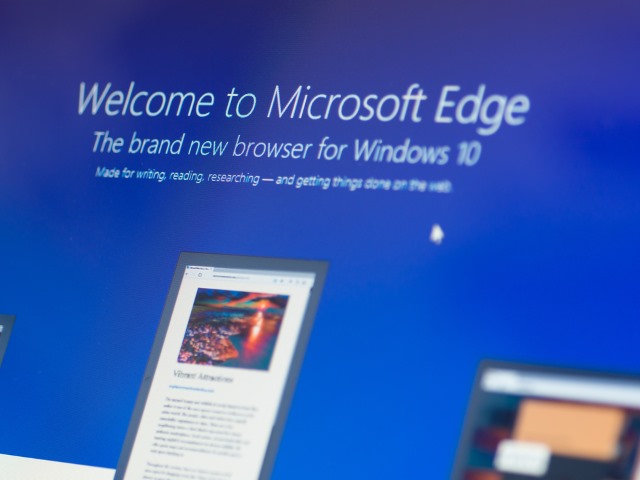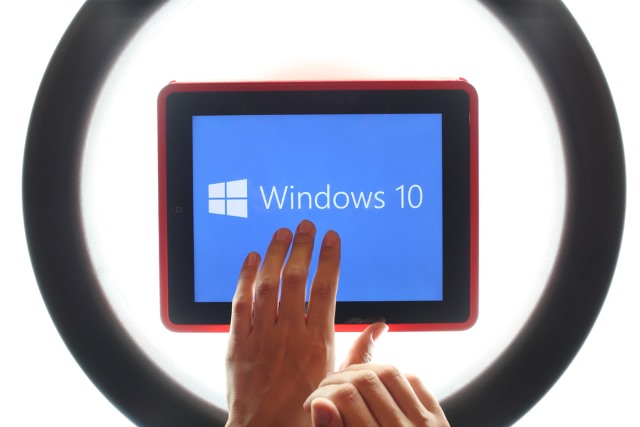
Microsoft Edge is way more secure than Chrome and Firefox
While Microsoft Edge might be a little lacking in features, compared to more established browsers like Chrome and Firefox, one area where it is better than its rivals is security.
That’s according to NSS Labs which today announced the results of its latest Web Browser Security comparative test. The test pitted Chrome, Firefox and -- for the first time -- Edge against each other to see how effective the browsers are at protecting against threats.

Mozilla announces Project Mortar to bring Chrome plugins to Firefox
The browser wars continue as Chrome, Opera, Firefox and Edge all vie for attention. One of the biggest draws to any browser is plugin support, and the absence of a particular plugin can make the difference between a user switching allegiances or sticking with their tried-and-tested browser.
With this in mind, Mozilla launches Project Mortar. Its aim is to make the development and maintenance of Firefox as cheap and easy as possible. To do this, it is investigating the possibility of borrowing plugin functionality from other browsers, including PDF and Flash support from Chrome.

Microsoft re-runs Google tests and shows that Chrome has worse battery life than Edge
The bitch-fest that has been rumbling on between Microsoft and Google is showing no signs of abating. We’re all used to the concept of companies engaging in games of one-upmanship, and this has certainly been the case when these two stalwarts have been slugging it out with their respective web browsers.
The most recent battles have been fought over which browser is the most battery efficient. It’s only very recently that Google claimed that Chrome trounced Edge in battery tests -- Microsoft disagrees. The company has re-run Google’s tests and says that it produced very different results. Rather than showing that Chrome offers the best performance when it comes to playing video, this second batch of tests shows -- unsurprisingly -- that Edge is the best by quite some distance.

Lyrics Here instantly displays lyrics on YouTube, Spotify, SoundCloud, more
There are many ways to find lyrics to whatever you’re playing online, but they’re usually slow, inconvenient, maybe inaccurate, and sometimes all three. Lyrics Here is a browser addon for Chrome, Firefox and more which instantly finds and shows the lyrics for whatever you’re playing on YouTube, Spofify, Deezer, Google Music, SoundCloud and 40+ similar sites.
There’s nothing to set up or configure. Just visit YouTube or a music site, find and play something, and a new pane quickly appears (usually at the same time as playback starts) with the song title and lyrics.

Changes to Microsoft Family make it possible to block Chrome and Firefox in Windows 10 Anniversary Update
Windows 10 Anniversary Update introduced a number of changes to the operating system, and Microsoft has started to email users about changes to Microsoft family settings. As the name implies, this is about keeping things family-safe, family-friendly, but one of the changes is unlikely to go down well with rivals.
While new Microsoft family options make it easier to place limits on what children are able to do with a computer, a controversial option forces the use of Internet Explorer or Microsoft Edge. Microsoft has made it possible to block the use of Chrome, Firefox and other rival browsers.
Firefox 49 for Linux gains plugin-free support for Netflix and Amazon Prime Video
Another plugin bites the dust. The Windows and macOS versions of Firefox have supported the Widevine video protocol for a little while now, and the upcoming Firefox 49 for Linux gets the same treatment.
What this means is that streaming video services that use the Google-owned protocol -- including Netflix and Amazon Prime Video -- can be watched without the need for plugins.
Firefox 48 FINAL improves download protection as part of wider security crackdown
Mozilla has unveiled Firefox 48 FINAL for desktop. After the relatively minor releases of late, Firefox 48 contains a number of notable new features, both visible and behind the scenes, to excite users.
There’s improved protection against potentially malicious downloads, the requirement for add-ons to be both verified and signed by Mozilla before they will load, and a number of WebRTC enhancements -- and that’s just for starters.

Browsing Firefox's hidden browsing history with Pin Patrol
If you’re wondering what someone’s been doing in Firefox then you could check the browser history, but if they’ve deleted it, along with any cookies, cache or logins, you won’t learn very much.
What isn’t so obvious is that Firefox has a hidden browsing history which records some of the sites you’ve visited, and isn’t removed when you wipe the official "Browsing & Download History".

Mozilla will block non-essential Flash in Firefox from next month
Flash is seen, quite rightly, as the scourge of the internet, and for some time there has been a vocal movement to eradicate all traces of it. Following the lead of Google Chrome and upcoming versions of Safari, Mozilla is taking the step of blocking Flash content from Firefox that is "not essential to the user experience".
It's part of the company's drive to reduce reliance on Flash, whilst recognizing that there is still a need to provide a degree of support for "legacy Flash content". Mozilla has taken the decision to ditch Flash in a bid to improve browser performance, boost security and improve battery life on mobile devices.

Microsoft Edge is the best browser for Netflix -- the only that offers 1080p on the desktop
Internet Explorer has been much-maligned over the years, and Microsoft Edge sees the Redmond company trying to shake off the shackles of the past. Its latest marketing push finds Microsoft claiming that Edge is the best desktop web browser for Netflix viewing.
The reason? In addition to claims about greater battery efficiency, Microsoft's killer blow is that Edge is the only of the main desktop browsers to support 1080p viewing. It might seem like a surprising and audacious claim, but the test bears it out. Microsoft Edge has a serious unique selling point.

Mozilla is working on a StumbleUpon-like feature
Mozilla has announced the creation of a new content recommendation system, which hopes will help people find better and more relevant content, easier.
The new product is called Context Graph, and the company’s VP of Products, Nick Nguyen, describes it as a "better forward button".
Firefox 47 widens HTML5 video support to include DRM-protected streams
Mozilla has released Firefox 47 FINAL for Windows, Mac and Linux. Version 47 adds support for Google’s Widevine CDM, enabling compliant sites including Amazon Video to stream DRM-protected video natively using HTML5 rather than via a third-party video plugin.
Elsewhere the new build drops support for add-ons that use the Firefox User Extension Library, plus implements a tweak that allows pages in Reader Mode to be read aloud to the user.

Auto-close unused Firefox tabs with Dustman
You can resize Firefox tabs, group them, send them to another window, but it won’t make any difference: there’s never quite enough tab space to go around. Dustman is a free Firefox extension which helps out by automatically closing tabs which haven’t been used in the last 20 minutes.
That could be potentially risky, but as with the similar Tab Wrangler for Chrome, the developer has used several tricks to reduce the chance of problems.

Microsoft Edge and Internet Explorer now trail Mozilla Firefox
Internet Explorer and Microsoft Edge are slowly but surely losing ground in the desktop space. In fact, according to web analytics company StatCounter, for the first time Mozilla Firefox has more usage share than the two other browsers combined. However, Google Chrome still reigns supreme
Google Chrome is now the most popular desktop browser according to all the major web analytics companies. NetMarketShare was the last one to crown it king earlier this month -- Google Chrome surpassed Internet Explorer in its rankings with a 41.71 percent usage share to the latter's 41.33 percent.

Mozilla asks the FBI for details of Tor vulnerability that could also affect Firefox
Mozilla is fighting to force the FBI to disclose details of a vulnerability in the Tor web browser. The company fears that the same vulnerability could affect Firefox, and wants to have a chance to patch it before details are made public.
The vulnerability was exploited by FBI agents to home in on a teacher who was accessing child pornography. Using a "network investigative technique", the FBI was able to identify the man from Vancouver, but Mozilla is concerned that it could also be used by bad actors.
